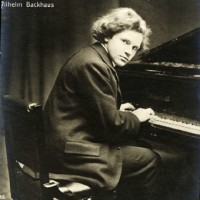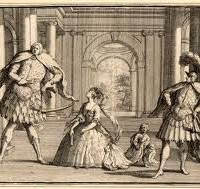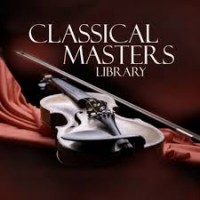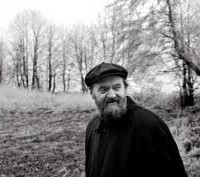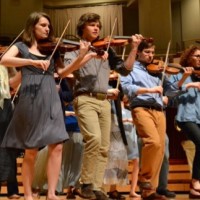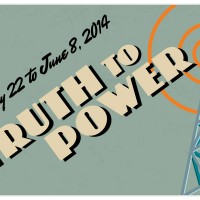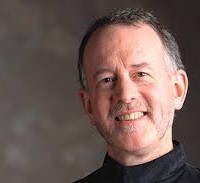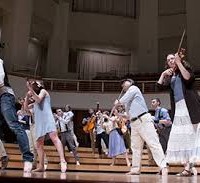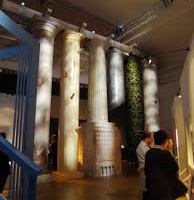[contextly_auto_sidebar id="6Noc77JdO5a3lVHeCLT9sJZdKxTcDFSs"] I use an app called TalkTo. Which, when I need it, is one of the most valuable apps I have on my iPhone. With it, I can text stores, to ask questions. Does the supermarket nearest me have a garlic press in stock right now? An answer comes within five minutes. Invaluable! Once, out at our country place, I needed to buy a MacBook Air in a hurry. Ten minutes with TalkTo told me that I needed to drive an hour to an Apple Store, because neither of the Best Buys in the area, which … [Read more...]
Come down from the mountain
[contextly_auto_sidebar id="bD9WuwLfHFtS9NGa7KuhB7WC30LSfDk5"] Last week I went to a party, where I met a lot of people who are (1) precisely not the classical music audience, but (2) precisely the people we need to have in it: Smart, educated, intellectually curious people in (I'd guess) their 30s. The creative class, if you like, of Washington, DC, in 2014. I talked the most with a couple who were very savvy, and very involved musically, involved enough to go (even though they have a two-year old) to New York for a music festival. Of … [Read more...]
Links are fixed
[contextly_auto_sidebar id="OUIRG3CfYAXHKD1oEhkkfQCojdCcF1fR"] A thousand apologies. My last two posts, on ornamentation, had bungled links. Due to my misunderstanding of a feature in my FTP software. Very unfortunate, to offer you what I think are stunning examples of ornamentation, and then not let you hear them! But now the links are fixed, including my favorites, which go to Eva Podles's vocal fireworks, showing how an 18th century singer might have ornamented the da capo repeat in a Handel aria. And to three versions of "Ecco … [Read more...]
Making the old new (3)
[contextly_auto_sidebar id="DcLxR7KIv8h3t7Xd3l54sBypZSlRABsl"] NEW VERSION — LINKS WORK! I bungled many links in this post, for which I give so many apologies. Not helpful, to set out to show what ornamentation was like, and then block you from hearing it. Now it's all fixed. I also bungled the link to Eva Podles in my last post. And then bungled it again, trying to fix it here. Here it is correctly. Podles is singing "Or la tromba" from Handel's opera Rinaldo, giving a stunning display of go-for-broke virtuosity. And of how to properly … [Read more...]
Making the old new (2)
[contextly_auto_sidebar id="t2pbrH2KB3OBsaByIS6DZnVptkA34PE7"] Continuing my thoughts about how to make old masterworks sound contemporary. In my last post, I said what I think the problem is. At most classical music performances, the old works don't immediately sound like they come from the time when they were written. (Compare reading Dickens: One paragraph and you know what century you're in.) But they also don't sound like they fit anywhere in our current world. Or at least not in the world outside classical music. So one way to … [Read more...]
Making the old new (1)
[contextly_auto_sidebar id="NFgJWmQrnMTxeBiz7WlmqgGlHwt2cIYa"] One of my recurrent thoughts is that classical music (you've read it here) has to become a contemporary art. And in two recent posts — here and here — I've blogged about concerts that seemed to do that. But they did it largely by playing new music. How can older classical music — all those familiar masterworks — sound contemporary? Because most of the time they don't. Or let me qualify that. Most performances of works from the classical canon live — or at least I think so — … [Read more...]
Another concert for today
[contextly_auto_sidebar id="df1klMs6MIWOAfPs56ROqiMMngoYGiwl"] i've been saying that classical music needs to be a contemporary art. Gave an example here of how it can be. Here's another one. Imagine the Kennedy Center concert hall at 6 PM this Tuesday, packed with people attending a concert of works by a living composer. The concert, featuring an orchestra and chorus, was scheduled as one of the Center's daily Millennium Stage productions, which take place in one part of the lobby, with removable chairs, for what's looked, to me, like a … [Read more...]
Essential video
[contextly_auto_sidebar id="7AvneDP3QsFnKhR45OJpSm0moIBSuDkC"] I blogged awhile ago about the extraordinary Appalachian Spring, performed by the University of Maryland Symphony Orchestra, with the musicians playing from memory and dancing. Now there's a video. Watch it! I think you'll be inspired. And if you haven't seen it, you also might watch the group's earlier video of Afternoon of a Faun, also played from memory and danced. These two performances, Faun and Appalachian Spring, are some of the most extraordinary musical work being … [Read more...]
A performance for the present day
[contextly_auto_sidebar id="csN5HKQJHsh15Un1vW2SD88emB390jWq"] I've said many times — most recently here — that classical music needs to be a contemporary art. But what does this mean? That's a long discussion, one that deserves a full chapter in a book, or maybe even a book of its own. But I'd like to start on it now, with some blog posts in the next month or so. And what I'd like to address today is maybe the hardest part of the discussion (or at least the part we might not have thought too much about), which is what -- once … [Read more...]
Speak truth to power
[contextly_auto_sidebar id="HkrgFg74uvgItTDBxhVGsY6oYtLgjafA"] "Truth to Power": That's the name of a festival the Chicago Symphony is offering from May 22 to June 5, with the idea of highlighting "music's ability to connect people and harness the power of shared experience," and to "inspire justice and fairness." The title, of course, is a shortening of "Speak truth to power," one of the most powerful rallying cries in politics. It comes from a Quaker manifesto, published in 1955, about the need for peace, to be fulfilled by active … [Read more...]
A stunning manifesto
[contextly_auto_sidebar id="RXfE9O9GJVymPgMcaUmQBAuCEx5vzm9P"] In my last post, I raved about the incredible University of Maryland performance of Appalachian Spring, with the musicians playing from memory and dancing, a sequel to the student orchestra's similar performance of Afternoon of a Faun two years ago. But performances like these don't happen on some sudden whim. They have a history. They grow from some serious thinking about what classical music should be, and about what classical music students should be taught. And in this case … [Read more...]
A very special concert
[contextly_auto_sidebar id="FmSYnn3rOGhTVDgg97VEe5Ou89SzFtGR"] We often say music is moving, without really thinking about what the word means. Our actual experience of classical music tends to be still. The musicians may sway a bit when they play, and we in the audience may tap our toes, but there’s a sense that such movements are involuntary outbursts in a climate in which they are meant to be suppressed. On Sunday afternoon at the Clarice Smith Center, the University of Maryland Symphony Orchestra offered a literally moving performance. … [Read more...]
The burden of the past
[contextly_auto_sidebar id="ZzimVSUM4IMse9NvooQKbHWovZP4HIlJ"] Exhibit A: A question asked at a panel discussion on the future of classical music. I’m paraphrasing, but the questioner said we hadn’t been talking about our subject. We’d been talking about ways that classical music could change. But then we’re not talking about classical music. We’re talking about the future of something else. What about the future of all the old ways of doing classical music, the ways classical music has been presented for much of the last century? Exhibit … [Read more...]
Measuring success
[contextly_auto_sidebar id="jbun5DGmmxWBseMNdsmmWShezjYLTTqQ"] Not long ago I spent some time with the executive director of a regional orchestra. She'd set some changes in motion, some well thought-out new programming that might develop a new audience, and root the orchestra more deeply in its community. As she and I talked, I got curious about something I often wonder about, which is how the success of these changes might be measured. How do you know if they're working? I've seen situations in which that question isn't asked, leading to … [Read more...]
Institute for Advanced Study
[contextly_auto_sidebar id="5dp52etBr5l7OwD57zlyXeHJhxDx9NCx"] Here's an idea, which I owe to someone who runs an important classical music institution in the US. He's not going to act on it himself, so I feel free to present it. And, without meaning to be coy, I don't feel comfortable naming him, because he hasn't come out in public as someone hungry for change in classical music. Which means, just in passing, that he illustrates something I've said from time to time, here and elsewhere — that it's hard, at least in the US, to find someone … [Read more...]




